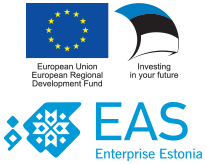The Giants of VR – Joanna Popper of HP

There are few that know the inner workings of VR quite as well as the good people at HP. We were lucky enough to have Joanna Popper, Head of Location-Based VR Entertainment at HP take a moment from her schedule to answer a couple questions for us.
–––
To start off, tell us a little bit about HP and what you do there.
HP was one of the first companies building out what we know as Silicon Valley with the start of two great engineers in a garage. Ever since then we have focused on inventing and reinventing technology and the future. We see VR and Immersive Computing as the future of computing, so it is very important to HP to be leading the way in these areas. This impacts our VR products and how we do business. We focus on 5 different sectors in VR: LBE, Training, Architecture/Engineering/Construction, Healthcare and Higher Education. In my role leading Location-Based Entertainment, I focus on working with operators and content creators and ensuring they’re accessing the best technology to create, design and experience VR.
What sparked your interest in VR?
I see VR as the next wave in computing and I am excited about being part of building and riding this wave with so many other fantastic colleagues. I love the unique combination of storytelling and innovation.
With VR still being in its infancy and you being a marketing guru, can you bring some examples of how marketing VR is different from marketing 2D software or a tangible product?
The most effective way to “market VR” is to have people experience it. Sampling, activations, events and just getting people into the experiences to have that immersive, interactive and emotional connection is most effective.
In addition to the VAL tournaments, are you and HP involved in any other interesting VR/Esports projects?
Our Omen by HP brand is one of the biggest technology brands in gaming and Esports. We sponsor the Overwatch League and have many other exciting partnerships and sponsorships with many Esports teams around the world. In VR, in addition to the work we are doing with VAL, we are working with companies such as VRStudios, So Real and many others who are creating Esports content.
Would you say that VR Esports has the potential to rival 2D eSports?
They are both exciting markets at different stages of maturity with fast growth, engaged fans, and extensive use of our technology.
Some have raised concerns about the relatively low end-user adoption rates for VR; on the other hand, location-based VR seems to be doing well. From your insider perspective, how would you comment on this?
VR is still in early stages for consumer adoption. As I said earlier, sampling is the most powerful tool, so LBE will help expose people to the true potential of the technology through powerful immersive experiences. Our numerous partners in this space like VRStudios/Dave & Buster’s, Spaces, Nomadic, Two Bit Circus and more are creating locations to go with family and friends to access this powerful and impactful experience for only the price of a ticket.
I highlighted the 5 enterprise industries HP focuses on earlier. HP’s focus on commercial VR development and deployment will ultimately drive wider VR adoption.
What trends can we expect in LBE in the coming year or so? And does HP have plans to invest more in LBE?
As far as trends go, we are seeing rapid proliferation of new venues opening which offers consumers the chance to experience what we in the industry love so much. As venues scale, we are also seeing a professionalization as they scale with LBEs realizing they need to focus on what they do best and leave hardware to hardware experts like HP. Whereas we used to see more DIY, we are seeing more partners who want the products, support, security and global reach that HP provides.
You can count on HP continuing to invest in the market and continuing to develop ground-breaking technology with our partners such as Nvidia, Intel and Microsoft.
On a more general scale, do you think there is a market for products like haptic suits and gloves, VR treadmills, cybershoes, etc.?
Ready Player One made it seem like there will be a market for all these products. And my understanding is that some of them are selling well.
And lastly, what are some of yoaur personal favorite games and experiences currently available in VR?
I just got back from IAAPA.
There were some great projects I saw there, including:
– VRsenal’s autonomous cabinets for Beat Saber, Fruit Ninja and Predator;
– VRStudios PowerPlay and ATOM;
– Nomadic’s launch of Arizona Sunshine at Pointe Orlando;
– Hollow Zone’s Jack the Ripper escape room.
HP was proud to be powering all of these experiences.
At Filmgate Interactive during Art Basel in Miami, Florida, HP is also proud to be powering the VR experiences including award-winning Awavena and Spheres, among many others.
–––
Sandra Müür, Community Manager at Skyfront VR


Stay Connected